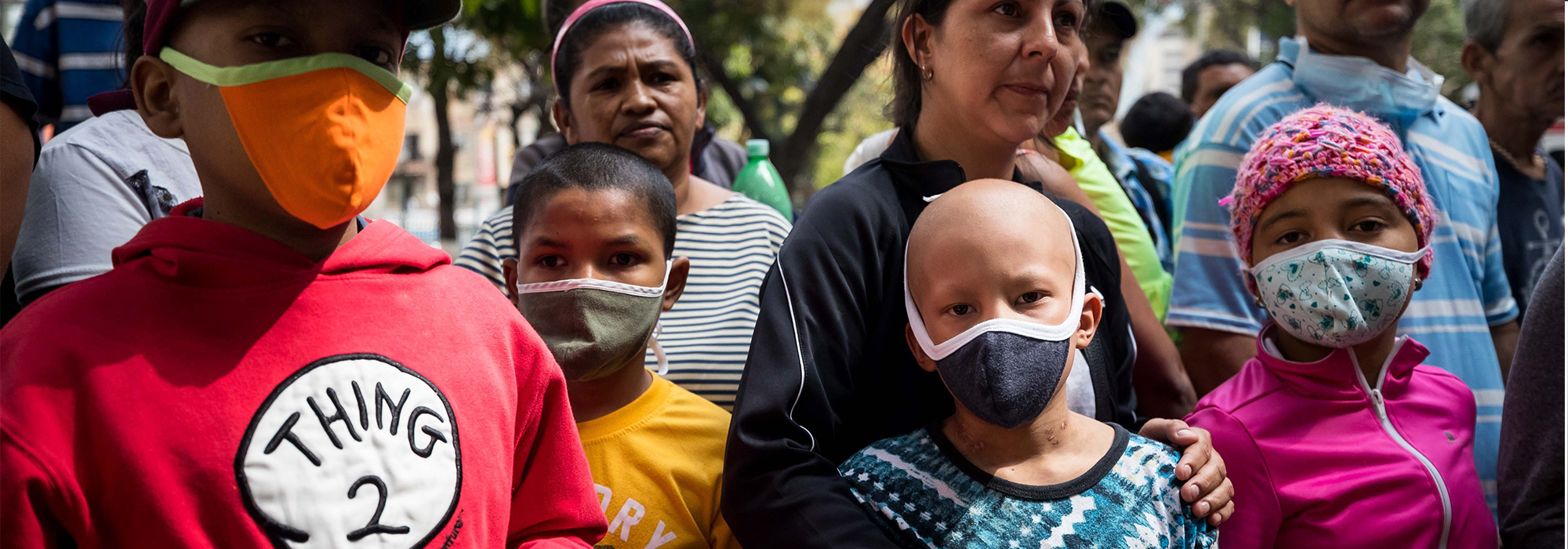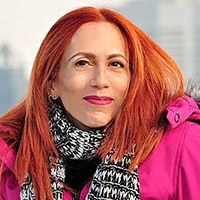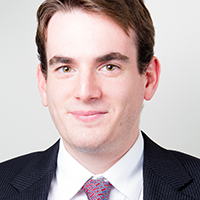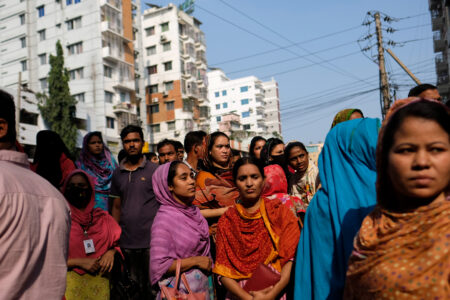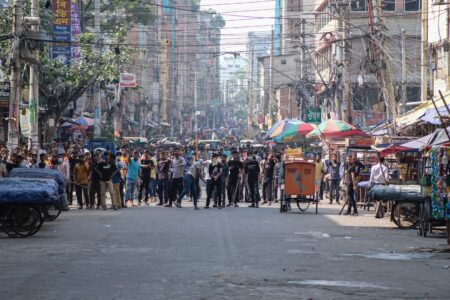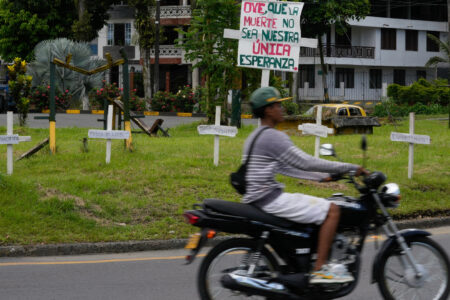
The regime of Venezuelan President Nicolás Maduro has spearheaded a program of mass domestic repression and humanitarian deprivation unprecedented in the country’s history. There has been an increase of over 65 percent in maternal mortality, and an over 30 percent increase in infant deaths. There is a resurgence of diseases that were once nearly eradicated in Venezuela, and a critical shortage of medicine necessary to treat them. There is skyrocketing malnutrition — seven out of 10 homes do not have enough food — with children being the most vulnerable to stunted growth and starvation. The UN highlighted in its Global Report on Food Crises that the situation in Venezuela is veering toward an even greater absence of basic consumer goods like food and medicine. Nonetheless, international efforts to address and redress these shortages are blocked by the regime.
This is not a “bitter class war,” as some have described it, of rich versus poor; it is a struggle for dignity and justice for the Venezuelan people in the face of oppression from Maduro’s violent and kleptocratic elite. Indeed, those opposing the regime constitute a broad and inclusive cross-section of Venezuelan society — urban and rural, rich and poor, young and old — united in common cause.
In response to this grassroots democratic movement, the regime mobilized to murder, maim or jail its opponents. Since January 2014, over 12,000 Venezuelans have been arbitrarily detained. Those who are unjustly imprisoned for their anti-regime views are often tortured, including through the use of electric shock, severe beating, suffocation and sexual violence. In a recent report, the United Nations Office of the High Commissioner for Human Rights concluded that there are “extensive violations of human rights by national authorities,” highlighting that they “systematically used excessive force to deter demonstrations, crush dissent and instil fear.”
This offensive launched by the regime against the people of Venezuela is underpinned by a full-scale assault on the institutions of democracy that are meant to serve them. Democratic opposition members are violently intimidated, in exile or in prison. The elected legislature has been disbanded, the independent judiciary dismantled and civil society dismembered.
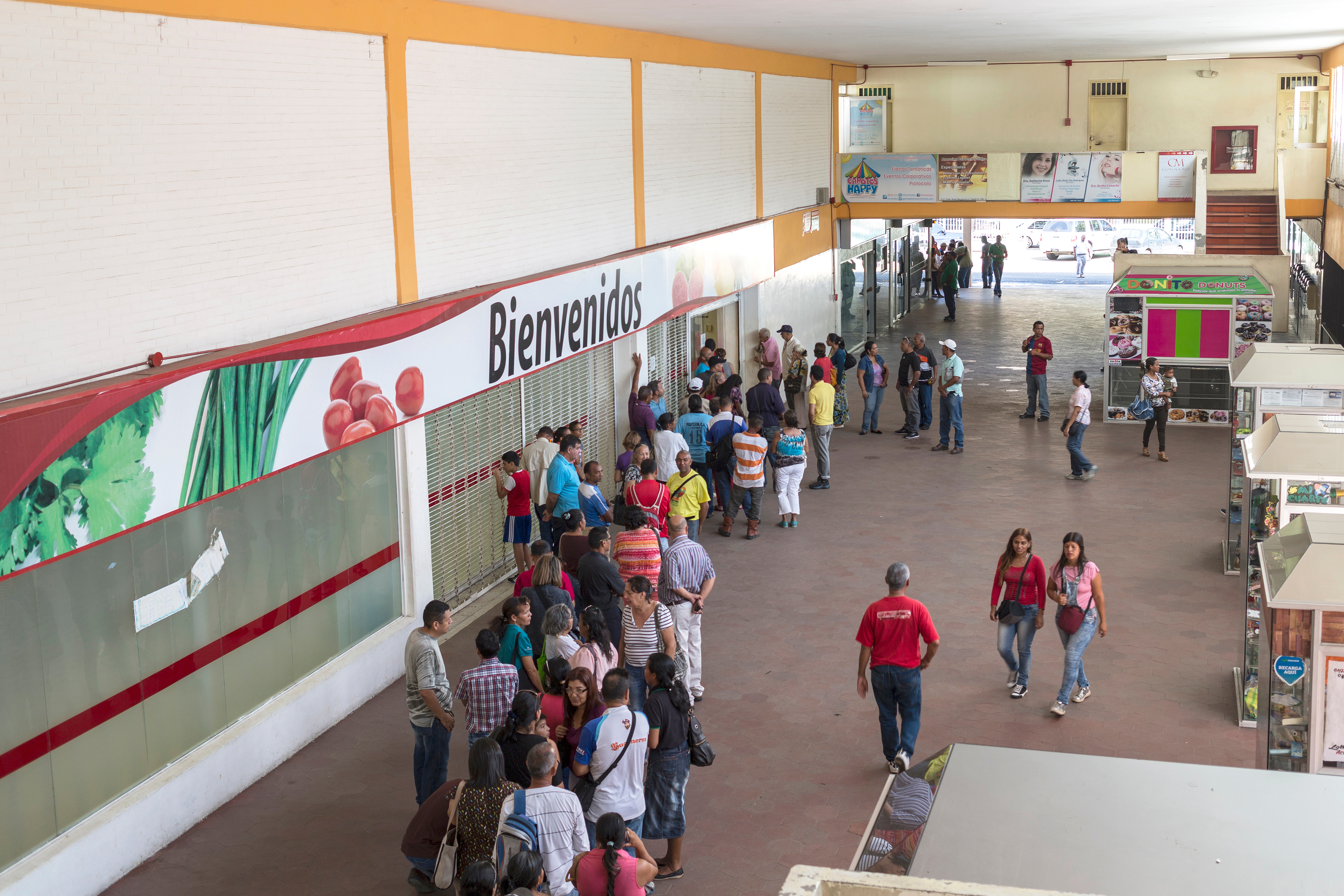
The plight and pain of imprisoned democratic opposition leader Leopoldo López — with its compelling Canadian connections — individualizes and humanizes this widespread and systematic assault. López, whose ancestors immigrated to Venezuela from Fredericton, New Brunswick, was imprisoned on trumped-up charges in February 2014. He had been a leading prospective presidential contender against Maduro, with one poll indicating he would receive 52.5 percent of the vote to Maduro’s 20.5. The UN Working Group on Arbitrary Detention, among many others, has determined that he is a political prisoner and has demanded his release.
The judge who issued the arrest warrant for López, Ralenis Tovar, had testified that she was forced under threat of imprisonment and torture to sign the warrant. She has since fled and sought refuge in Toronto.
Similarly, the prosecutor in the case, Franklin Nieves, has stated that it was a “sham trial” orchestrated by Maduro for political reasons, and that “after examining each and every piece of evidence” it was clear that Leopoldo López is innocent. Nieves, too, has since fled and sought refuge abroad.
As well, the witnesses in the case were tortured, and under the threat of murder were forced to sign false statements incriminating López.
This one case — a microcosm of the larger state-orchestrated assault on Venezuela’s people and institutions — is illustrative of the attacks on the democratic political leadership, independent judiciary, public prosecution and the rule of law.
The condemnations of the Maduro regime and its crimes have been nearly universal — emanating from the Venezuelan people, leading human rights organizations, multilateral and international institutions such as the UN and the OAS, and democratic states spanning the globe. The outliers are fellow authoritarian regimes such as Putin’s Russia and marginal fringe figures.
Faced with such a depth of human suffering — perpetrated and perpetuated by the Maduro regime — Canada should be commended for joining the chorus of voices in support of the Venezuelan people, and for being a leader in that regard. Canada has been independent in crafting its policy and stands at the forefront of driving the global agenda on this issue. In particular, Canada’s targeted sanctions on Venezuelan human rights abusers adopted under global Justice for Sergei Magnitsky legislation are an effective and efficient tool to combat the culture of corruption and impunity that underpins these violations.
But there is always more that can be done. As current chair of the G7, Canada is in a unique position to advance this smart human rights sanctions framework among key allies, and should put it on the agenda of the June 2018 Summit in Charlevoix, with a view to engendering a more concerted and comprehensive global sanctions network targeting Venezuelan abusers.
As well, as an active member of the UN Human Rights Council, Canada should ensure that the institution respects its mandate in pursuit of peace, justice and human rights. Namely, in accordance with its founding resolution, Canada should mobilize the community of democracies to vote to remove Venezuela from the Human Rights Council, which should be a venue to expose and unmask violaters, not a place where they are rewarded with opportunities to obscure and obfuscate their crimes.
Domestically, Canada should add Venezuela to its list of state sponsors of terrorism. It is well documented that Venezuela has been working to export its human rights abuses, including collaborating with listed terrorist organizations such as Hezbollah and states such as Iran and Syria, which are already listed by Canada as state sponsors of terror. Adding Venezuela to the list would fill existing loopholes and further empower Canada in the pursuit of justice and accountability.
Photo: Patients and relatives of the Children Hospital Jose Manuel de los Rios protest over the scarcity of medical supplies, in Caracas, Venezuela, April 4, 2018. EPA/Miguel Gutiérrez
Do you have something to say about the article you just read? Be part of the Policy Options discussion, and send in your own submission. Here is a link on how to do it. | Souhaitez-vous réagir à cet article ? Joignez-vous aux débats d’Options politiques et soumettez-nous votre texte en suivant ces directives.



